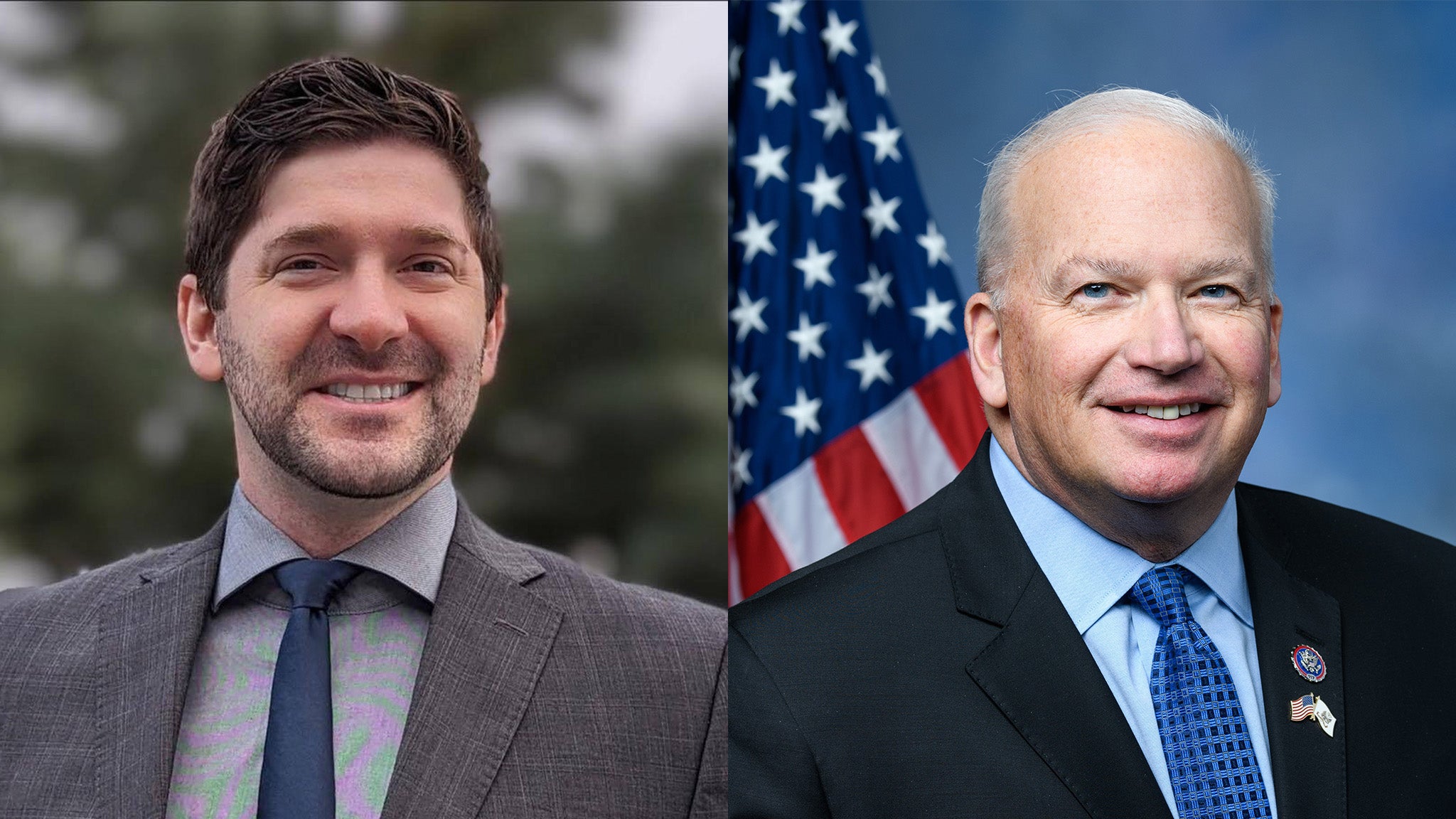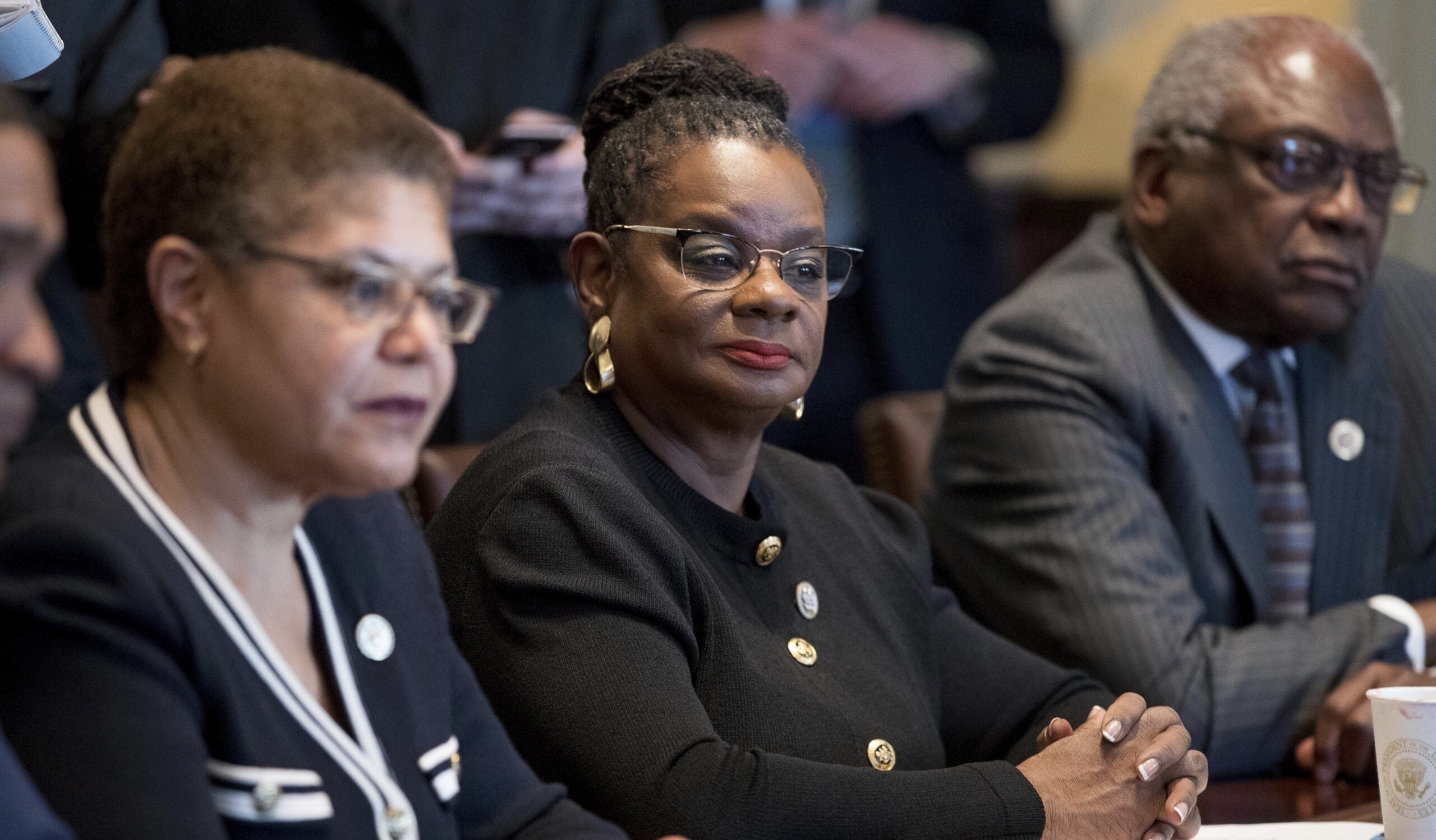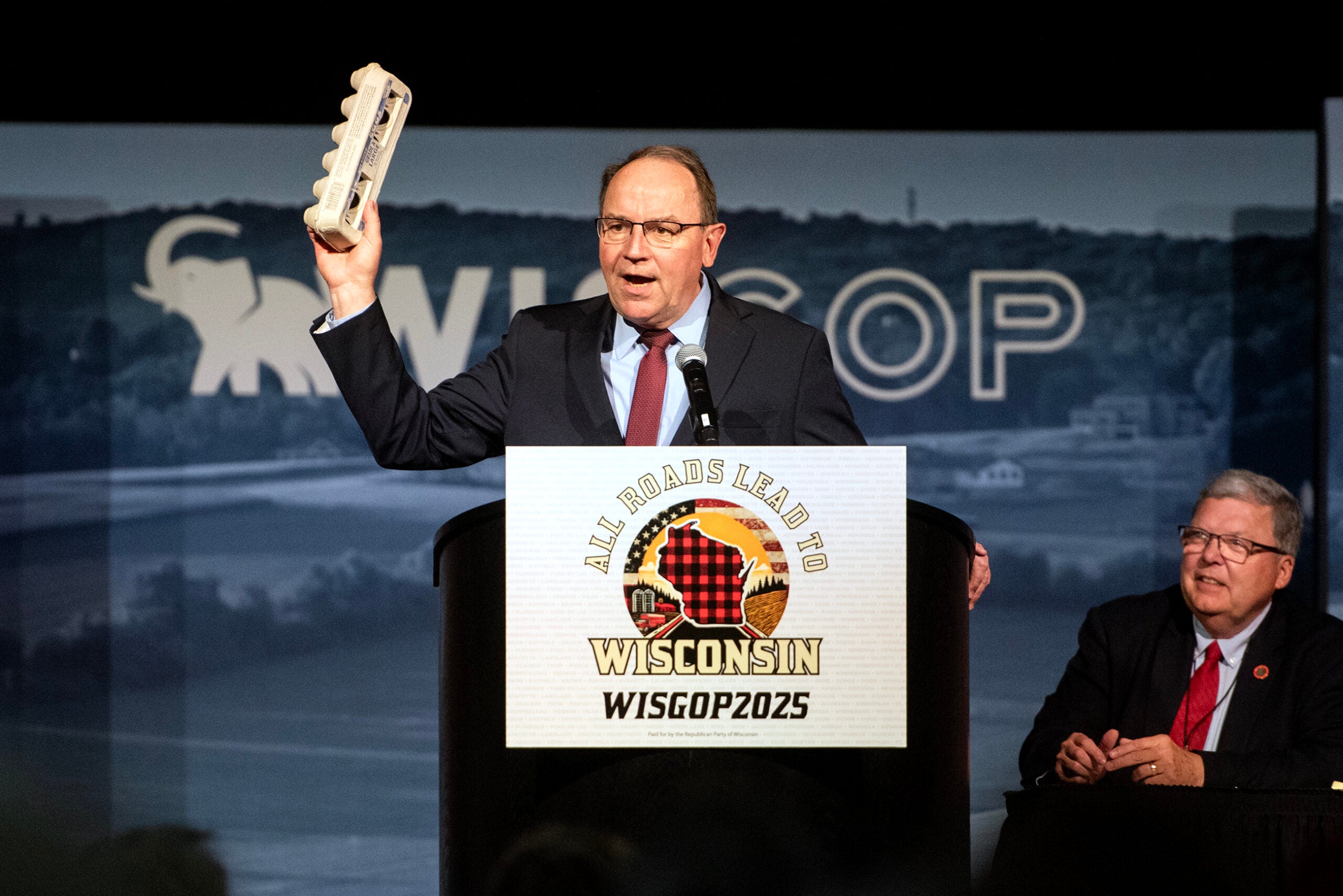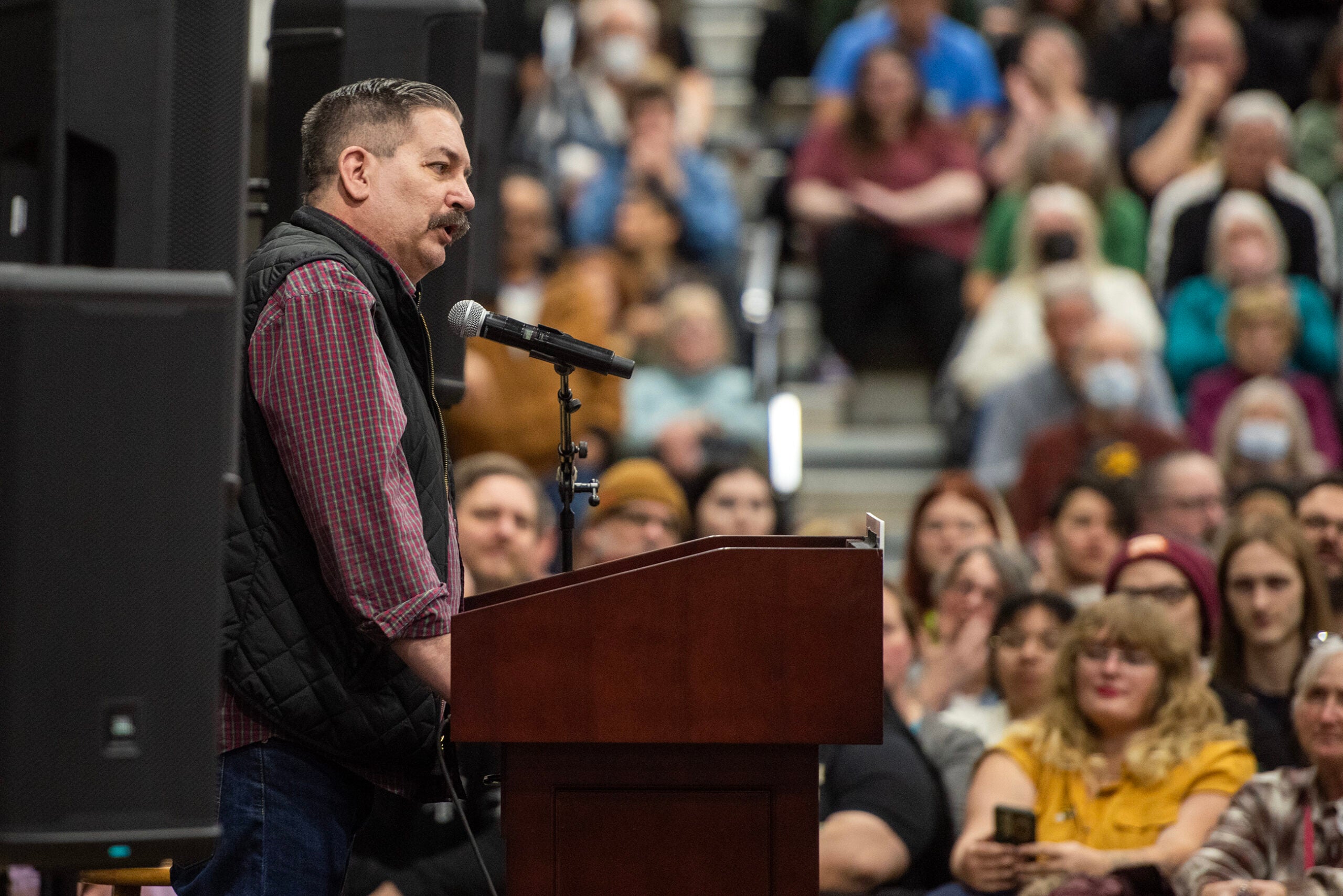Republican U.S. Rep. Scott Fitzgerald faces a challenge by Democrat Ben Steinhoff in the race for Wisconsin’s 5th Congressional District, which covers some of the deepest red territory in the state.
The district includes all of Waukesha, Washington and Jefferson Counties. It also includes parts of Dodge and Walworth Counties and bites off some of Milwaukee County in West Allis and Greenfield.
Steinhoff is making his first run for office. Fitzgerald, who spent years in the state Legislature, is seeking a third term.
News with a little more humanity
WPR’s “Wisconsin Today” newsletter keeps you connected to the state you love without feeling overwhelmed. No paywall. No agenda. No corporate filter.
Here’s a look at how they’ve presented themselves to voters.
Steinhoff’s experience as paramedic inspired congressional run
When Steinhoff moved to Lake Mills in 2020, he was working as a paramedic at the Monona Fire Department, in the UW Health emergency room, and for UW Med Flight.
“With all the free time that I had,” a chuckling Steinhoff said in an interview with WPR, “I decided that I would volunteer for our local EMS department.”
He soon found out that the all-volunteer Lake Mills EMS had to rely on a fundraising strategy of “pancake breakfasts and chili suppers” to make financial ends meet.
Steinhoff got interested in politics when federal pandemic aid briefly stalled in the state Legislature due to the 2018 lame-duck laws Republicans passed. He says his wife put up with his political rants, for a time.
“After about two years of this, she finally just goes ‘Honey, I love you to death, but either shut the hell up or do something about it!’” he said.
Steinhoff decided to run for Congress against Fitzgerald. His platform includes calls for increased funding of EMS services, and wider adoption of community paramedicine.
He said EMS-affiliated community paramedics would, for example, “check on home wound care, they could check on someone that was recently diagnosed with diabetes.”
Steinhoff explained he’s seen people who are “stuck at home” call 911 for those kinds of routine procedures, overloading EMS systems.
Steinhoff wants to pay for investments in education, infrastructure and 911 systems with with tax revenue from legalized marijuana.
“If we can nationally legalize it, at the federal level, then it would put a little bit more pressure on these states,” he said.
One recent Sunday, Steinhoff said he and his wife put about 150 miles on their car, going between campaign stops in Waukesha, Brookfield, Watertown and West Allis.
“Every day we’re out I feel better and better about our chances,” he said, adding that he’s trying to flip Jefferson County — where he got only 935 fewer primary votes than Fitzgerald — blue.
According to Steinhoff’s campaign website, his platform also includes Medicare for All and women’s reproductive rights.
Scott Fitzgerald a central figure in GOP politics for years
Fitzgerald was born in Chicago but moved to Hustisford in Dodge County at a young age. His father, Stephen, served as the Dodge County Sheriff and later led the Wisconsin State Patrol. His brother, Jeff, was once the speaker of the state Assembly.
Fitzgerald did not respond to WPR’s requests for an interview. According to the bio on his congressional website, he owned a newspaper in Juneau and served in the U.S. Army Reserve before getting elected to the Wisconsin Senate in 1994.
Fitzgerald was the state Senate Majority Leader for about nine years beginning in 2011, a period when Republicans dramatically reshaped state government.
He was instrumental in the passage of the law known as Act 10, which drew tens of thousands of protesters to the state Capitol because of the way it limited union bargaining rights for public employees.
He oversaw budgets that cut taxes and cut state spending to higher education, and he helped passed bills that ranged from new restrictions on abortion to a multi-billion dollar incentive package for Taiwanese tech giant Foxconn.
Shortly after being elected to the House of Representatives in 2020, Fitzgerald was one of the 127 Republican lawmakers who objected to counting Pennsylvania and Arizona’s electoral votes in 2020’s presidential election.
Fitzgerald has said the early days of President Joe Biden’s administration were “one of the most destructive periods of time in America’s history” because Biden’s executive orders during that window “destroyed the economy.”
Among other things, Biden used the period to reverse several Trump-era regulation-cutting orders and announce huge COVID-19 relief spending bills.
Fitzgerald made those comments earlier this year at the Republican Party of Wisconsin’s annual state convention. In that appearance, Fitzgerald also warned that 25-to-35 year-olds won’t “be a viable part of this economy” if home ownership isn’t made more affordable.
“There is absolutely no way for them to jump into the housing market,” he said. “And we know, traditionally in America, that is the way that you build wealth.”
Two bills authored by Fitzgerald passed in the House last month. One brings charitable bail funds under the purview of state regulators. The other allows companies to reject shareholder proposals that are similar to previously defeated ones, which Fitzgerald argues prevents the politicization of corporate boardrooms.
After attending a border security-themed House Judiciary Committee hearing on Oct. 24, Fitzgerald said that a growing immigrant population has put “tremendous strain” on the city of Whitewater. He said it’s an example of Biden-Harris “open-border policies” hurting Wisconsin communities.
By some measures, the 5th Congressional District is the most Republican in Wisconsin. In 2022, Fitzgerald received about 64 percent of the vote, the highest percentage of any Republican facing a contested race for Congress.
Wisconsin Public Radio, © Copyright 2025, Board of Regents of the University of Wisconsin System and Wisconsin Educational Communications Board.







